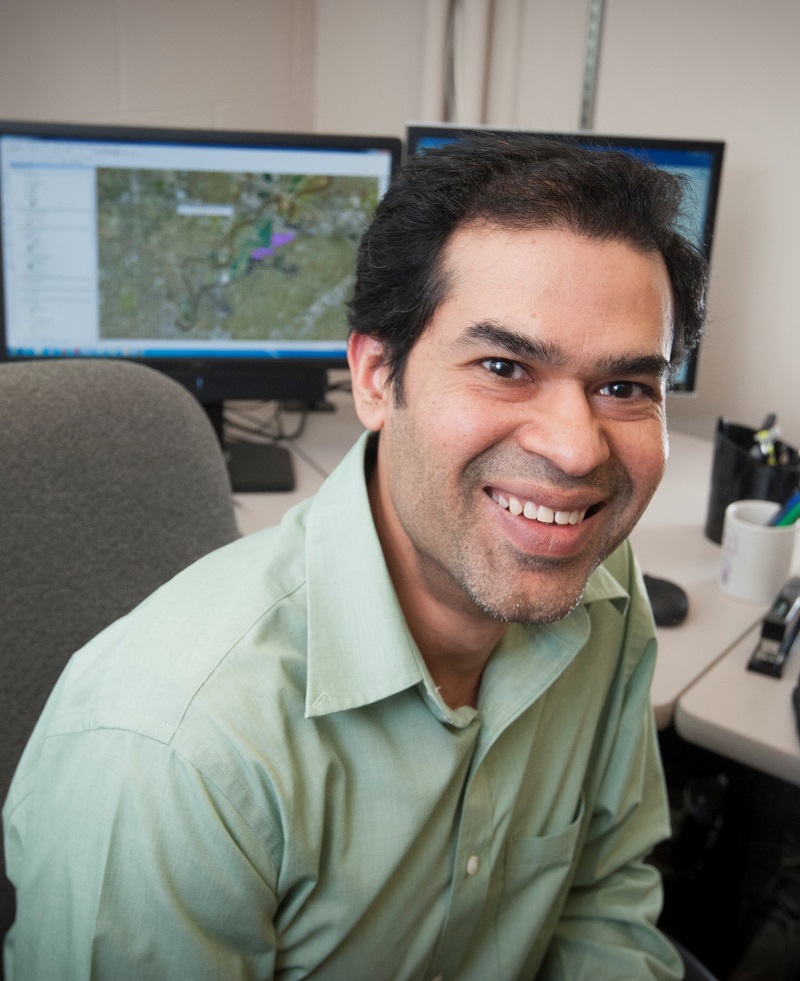Past News
Andrew Whelton Travels to Colorado in Aftermath of Marshall Fire
January 21, 2022
Faculty affiliate Andrew Whelton recently traveled to Colorado at the request of community leaders to assess and assist in response and recovery following the Marshall Wildfire.
Read More about "Andrew Whelton Travels to Colorado in Aftermath of Marshall Fire"
Purdue research strengthens soybean's potential in the plant-based protein market
January 19, 2022
Although most of the world's soybean crop is fed to animals, a Purdue plant breeder thinks that soybean's complete protein — it contains all eight amino acids essential for human health — makes it the logical choice for the plant-based meat increasingly making its way onto consumers' tables.
Purdue research strengthens soybean's potential in the plant-based protein market
Hua Cai Participates in Climate Assessment
January 14, 2022
Faculty affiliate Hua Cai is aiding in the New York State Energy Research and Development Authority (NYSERDA)'s newly launched New York State Climate Impacts Assessment: Understanding and Preparing for Our Changing Climate.
Purdue Faculty Advise National Volunteer Fire Council on Sewer Pipe Repair Safety
January 12, 2022
Drs. Jonathan Shannahan and Andrew Whelton were asked by the National Volunteer Fire Council to write an article for their website on the risks associated with sewer pipe repair emission exposures.
Purdue Faculty Advise National Volunteer Fire Council on Sewer Pipe Repair Safety
Making Midwest agriculture more resilient
January 7, 2022
A team of Purdue researchers has received a $10 million grant from the USDA National Institute of Food and Agriculture for a project seeking to make Midwestern agriculture more resilient.
2022: The Great Pivot? Hospitality Actions for the Decade of Decarbonisation & Restoration
January 6, 2022
From pledges to on-the-ground actions; the race to decarbonisation is on. This decade is also about restoring ecosystems which are vital to the global hospitality sector. Seasoned experts provide advice on proven and tested solutions and raise new ideas tackling both climate and biodiversity challenges.
2022: The Great Pivot? Hospitality Actions for the Decade of Decarbonisation & Restoration
Purdue University research highlights from 2021
December 20, 2021
From FDA approval on a Purdue-developed drug that helps surgeons find cancer lesions to self-aware algorithms that stop hackers to a new test for bovine respiratory disease, Purdue’s faculty helped to advance key research that improves our work, health and world. Enjoy a roundup of Purdue research news from 2021, thanks to our friends at Purdue Today.
Fall 2021 Events Recap
December 14, 2021
Fall 2021 saw the Center for the Environment returning to a variety of in-person events, including a series of signature research area socials, a panel discussion on food waste and sustainability solutions, as well as the Center's annual Environmental Research Expo in November.
Pen-side test for bovine respiratory disease may save cattle industry millions, reduce antibiotic use
December 7, 2021
Sous-vide cooking inspired an idea that took promising technology out of the lab and into the barn. Researchers at Purdue University successfully developed an on-site bovine respiratory disease test that provides results within an hour.
Pen-side test for bovine respiratory disease may save cattle industry millions, reduce antibiotic use

